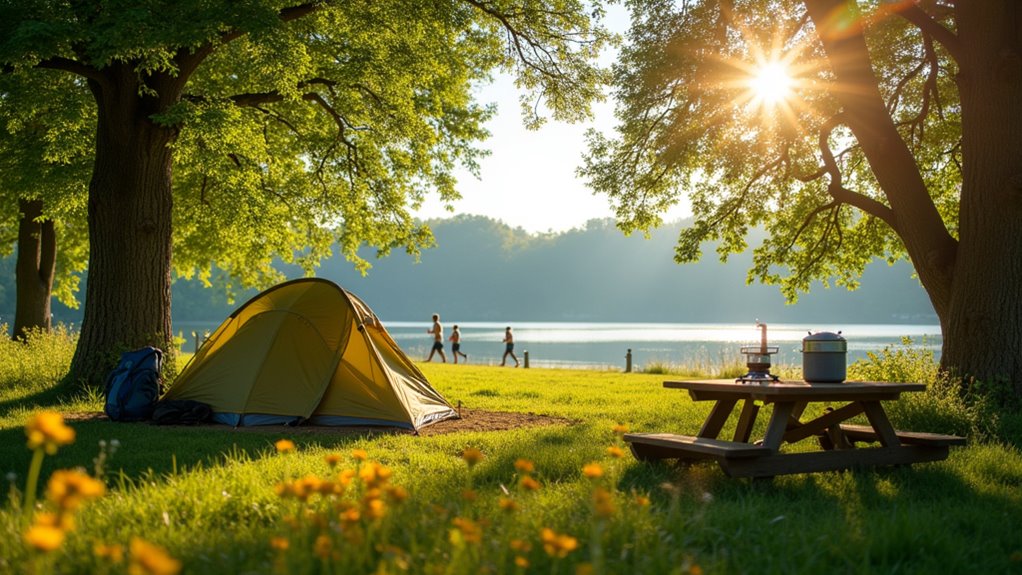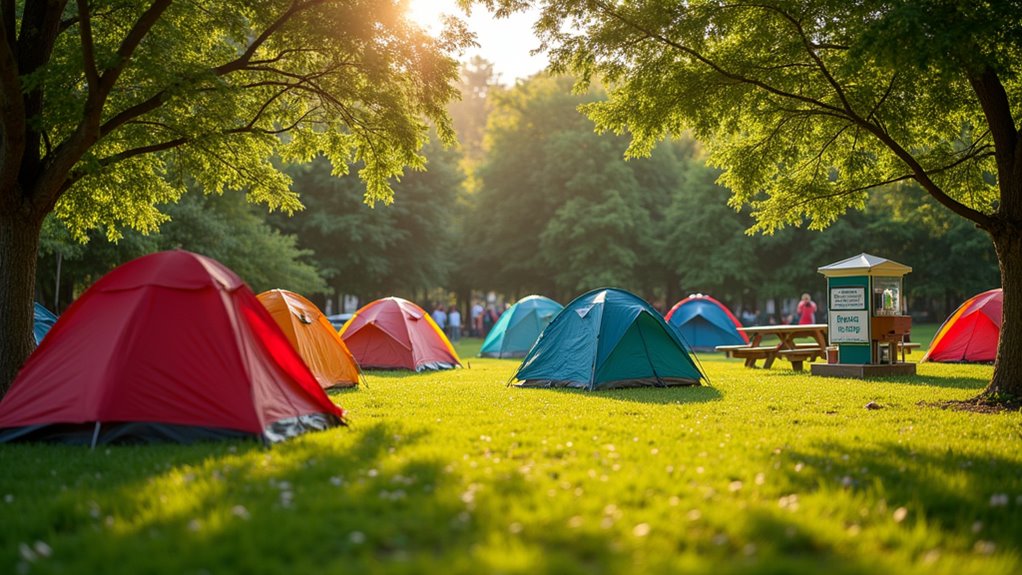Where Can A Homeless Person Set Up A Tent
This post contains affiliate links. As an Amazon Associate, we earn from qualifying purchases.
Homeless individuals can often set up tents in designated public right-of-way areas, such as the strips between sidewalks and curbs, where local laws permit camping during specific hours, typically from 7 PM to 7 AM. It’s important to avoid restricted zones like areas near schools or playgrounds and to consider designated camping facilities that provide additional support and safety. Further details and guidance on legal camping options and local regulations will be provided later in this article for those seeking more comprehensive information.
Essential Facts in 30 Seconds
- Verify local laws to ensure camping is allowed and avoid penalties.
- Use public right-of-way areas like sidewalk-curb strips if permitted.
- Utilize designated camping facilities offering safety and support.
- Keep campsites clean and choose safe, quiet locations.
- Follow any time restrictions on camping hours.
Understanding Legal Restrictions on Camping Locations
Cities have strict rules about where people can set up tents. These rules often include tents, blankets, and sleeping bags. The goal is to keep public areas safe and clean.
Many places ban temporary living spots in parks, sidewalks, and other public spaces. Breaking these rules can lead to fines or even jail time for repeat offenders. Some laws protect homeless people from punishment just for being homeless.
Yet, cities still enforce camping bans to protect health and safety. Knowing local laws helps find safe places to rest without trouble. Always check city rules before setting up a tent anywhere.
Permitted Public Areas for Tent Camping

Finding safe public places to camp with a tent helps many homeless people. Some cities allow camping on public right-of-way areas. These are the strips between sidewalks and curbs.
Camping is often allowed only during certain hours, like from 7 PM to 7 AM. Rules change by city, so check local laws first. Some places limit campsite size or ban camping near schools or playgrounds. Keeping the area clean and safe helps avoid health problems.
Some cities have vacant lots or city-owned land for overnight camping. These spots have clear rules on how many people can stay and safety measures. Local service providers or outreach groups can give the best information. Knowing these options helps you find safer, legal places to camp.
Designated Camping Facilities and Support Services

Designated camping facilities provide safe places for people without homes. Cities like Portland and Denver run these camps. They offer food, laundry, and health care.
Portland’s “Safe Rest Villages” helped many move to stable homes. Denver’s “Safe Outdoor Spaces” have 24/7 monitoring to keep people safe.
These camps have bathrooms, case workers, and mental health help. Using these services can make life better. Crime rates drop in these camps compared to illegal ones. This makes the area safer for everyone.
Research local camps to find one that fits your needs. The right support can help you find stability and hope for the future.
Impact of Anti-Camping Laws and Ordinances
Many cities have passed laws that stop people from camping in public places. These laws aim to reduce homelessness, but they often cause serious problems for homeless people.
The laws make camping illegal, which means people can get arrested for setting up tents in public. This doesn’t solve homelessness. Instead, it leads to repeated arrests and court visits, sometimes called the “revolving door” problem.
People often support these laws because they feel upset about seeing homeless camps. They want cities to be clean, even if there aren’t enough shelters available. This creates a conflict between enforcing the rules and protecting homeless people’s rights.
Courts have said that punishing people without offering shelter may break their rights. Knowing these facts helps you understand where it’s legal to camp and why the rules exist.
Conditions for Safe and Legal Tent Setup
Setting up a tent as a homeless person requires careful thought. Check local laws first. Many places need a permit to camp. Authorities can take this permit away if you break rules.
Pick a spot away from busy roads and sensitive areas. Stay clear of dangers like traffic and unsafe ground. Place your camp near water and toilets. Access to clean water and restrooms is key, as hygiene practices are essential for health and safety.
Each city or town has its own camping laws. Know them well. Keep your site clean at all times. Talk to local services for help and support. Following these steps helps keep your camp safe and legal. Additionally, it’s wise to develop a sanitation plan to maintain hygiene and ensure your living area remains safe and clean.
Frequently Asked Questions
What Should I Do if I Get a Camping Citation?
A camping citation needs close attention. Read it carefully for important details. Write down what happened and keep all evidence. Know your camping rights before acting. You can fight the citation in court. Many people win by proving their case. Talk to a lawyer if you feel unsure. Acting fast helps avoid heavy fines or other problems. Stay calm and handle the situation wisely.
Can I Camp on Private Property Without Permission?
Camping on private land without permission breaks the law. Property owners have rights to their land. You can be fined or face legal trouble. Local rules about camping vary by place. Always ask the owner before setting up your tent. Respect keeps you safe and out of trouble.
Are There Any Resources for Legal Assistance Regarding Camping Laws?
Legal help is available for camping rules. The National Homelessness Law Center offers legal aid. They fight unfair camping laws. They support people facing jail for homelessness. Many other groups also provide advice and help. These resources protect the rights of campers and homeless people. You can find help to understand your rights and fight unfair laws. Legal support can make a big difference.
How Can I Find Designated Camping Locations in My Area?
Local county websites and shelters list camping spots near you. These places show safe and legal areas to camp. Read the rules carefully. They help protect nature and keep you safe. Maps and guides online often mark these locations clearly. Phone calls to local parks can give quick answers. Many sites also share user reviews and tips. Following local rules ensures a great camping trip every time.
What Happens if Shelters Are Full When I Seek Help?
Shelters often fill up fast, especially in cold or bad weather. Try outreach programs or warming centers as other places to stay. Emergency services can help find spots, but they have limits. Some shelters only take certain people, like families or veterans. Keep calling and asking for help. Don’t give up. Many communities have extra resources during busy times. Stay safe and reach out to local groups for support.
Conclusion
Setting up a tent as a homeless person can be tough. Many cities have rules about where tents are allowed. Some public parks permit camping during the day but not at night. Shelters and supportive housing programs often offer safer places to stay. Some communities have special zones for tents or temporary housing. Always check local laws before setting up your tent. Staying in legal areas helps avoid fines or removal. Safety matters most. Find places with light, people, and access to help. Use maps or local resources to find good spots. Your shelter should protect you and respect the community.
